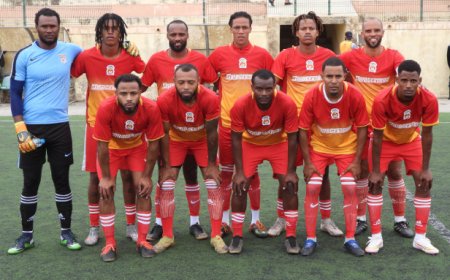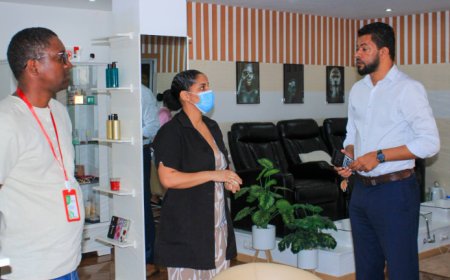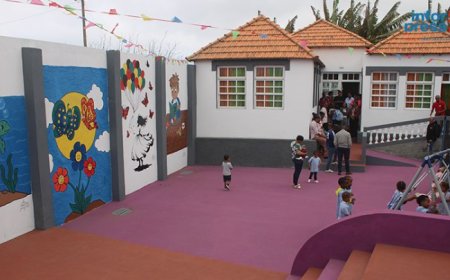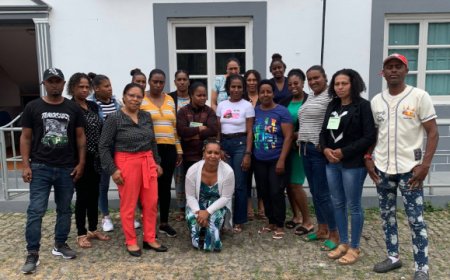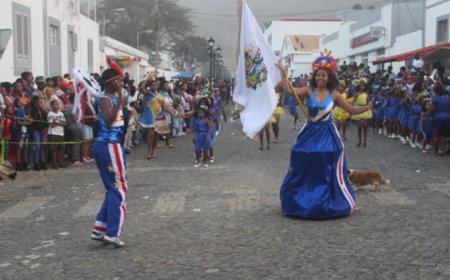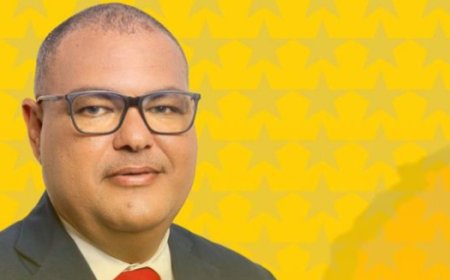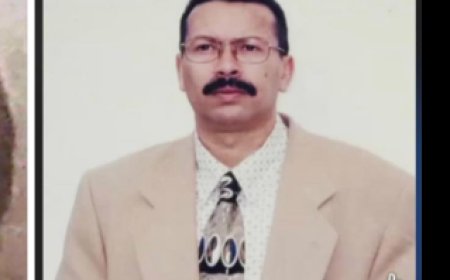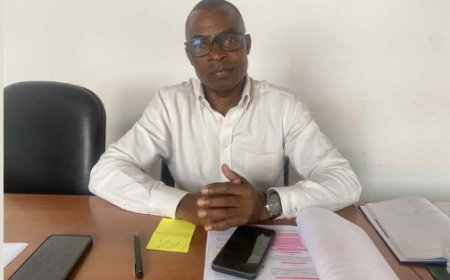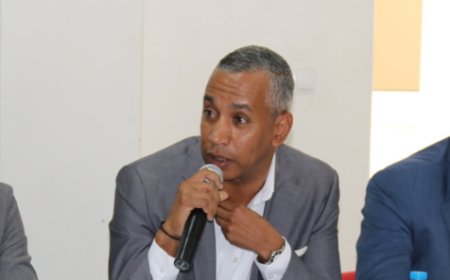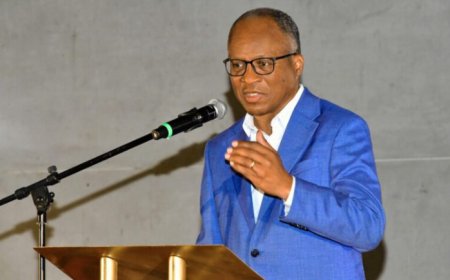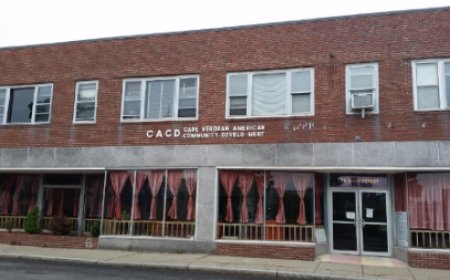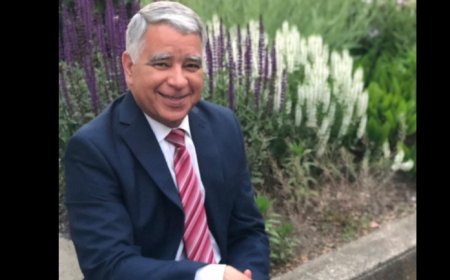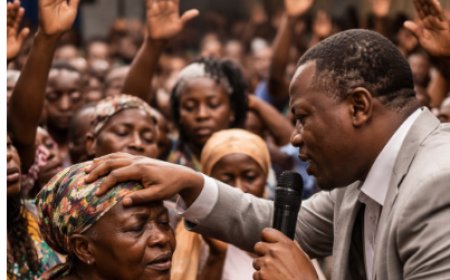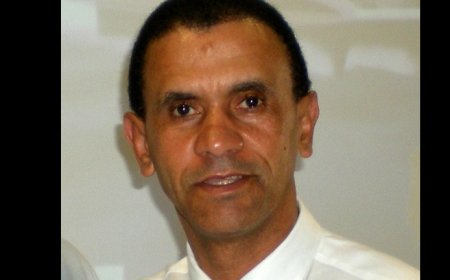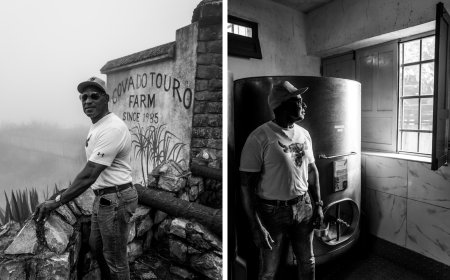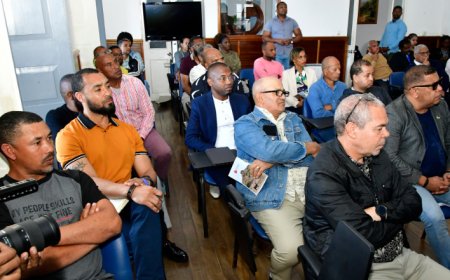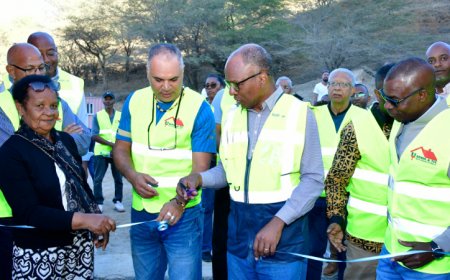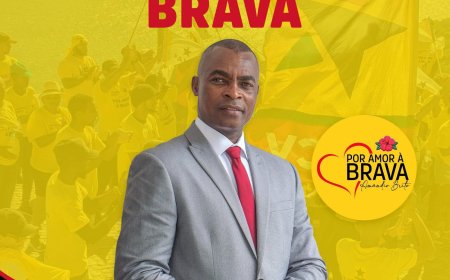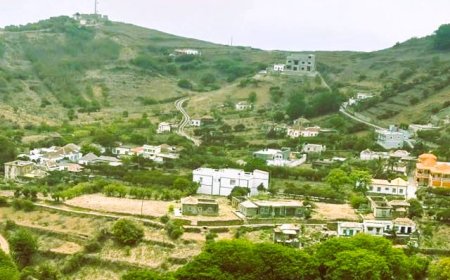Ilha Brava: 50 Years of Independence, a stifled hope
Nova Sintra City, July 5, 2025 (Bravanews) - Five decades have passed since Cape Verde shouted for its independence, a cry of freedom that echoed throughout the islands, laden with promises of progress and development. However, for the island of Brava, the smallest and most isolated in the archipelago, the fiftieth anniversary is marked by a bitter reality: blatant backwardness, persistent government neglect, suffocating isolation and a hopelessness that has become the keynote of its population.

A Brava, often affectionately called the "Island of Flowers" for its natural beauty and botanical richness, today bears more the scars of abandonment than the vibrancy that once characterized it. Basic infrastructure, essential for the development of any community, remains precarious. The roads, when they exist, are a maze of potholes, making travel a daily challenge and hindering the flow of agricultural products, the island's main economic activity. Access to drinking water, although there has been some progress and promises of desalination, is still a problem in many localities, and the electricity grid is often unstable, negatively impacting the lives of residents and the existing small business activity.
The neglect of successive governments, both central and local, is an undeniable reality that is deeply felt by the people of Brava. Promised projects remain on paper, crucial investments are postponed indefinitely and the voices of the population seem to echo in the void. The feeling that Brava is a forgotten island, relegated to a secondary plane in national development policies, is widespread. This government inaction not only perpetuates backwardness, but also undermines citizens' trust in institutions.
Brava's geographical isolation, although inherent to its insular nature, has been exacerbated by the lack of efficient and consistent maritime and air transportation policies. Connections with the other islands, especially with neighboring Fogo and Santiago, are irregular and costly, making the movement of people and goods a real ordeal. The lack of ships that can make frequent and regular trips is one of the biggest obstacles to the island's economic development. This stifles tourism, inhibits investment and makes life difficult for those who need to travel for medical appointments, education or business.
Consequently, hopelessness has set in on Brava. Many young people see emigration as the only way out of a better future, leaving the island in search of opportunities denied to them in their homeland. The rural exodus is visible, with villages emptying out and the social fabric weakening. Those who remain, often resigned, live with the feeling that progress is a distant mirage.
Fifty years after independence, the island of Brava is facing a crisis that demands urgent attention and concrete action. Its natural beauty and human potential can no longer be squandered. It is imperative that current and future governments look at Brava not as a burden, but as an integral and valuable part of Cape Verde, deserving of investment, attention and a sustainable development plan that responds to its specific needs. Only then will "Flores Island" be able to flourish again and hope will finally be able to overcome the hopelessness that consumes it today.
Is there still hope for the island of Brava?
The question of whether Brava still has time to turn things around and build a more prosperous future is a complex one, but the answer, although challenging, leans towards the NIM. It's not an easy task, but it's not impossible. Time is a critical factor, and the window of opportunity may not be eternal, but history shows that communities can get back on their feet with visionary leadership, strategic investment and, crucially, the commitment of their own people.
For Brava to flourish, a multi-faceted and coordinated approach is needed. Here are some crucial points:
-
Genuine political will: More than promises, the island needs a real and lasting commitment from central and local government. This means allocating resources, prioritizing infrastructure projects (roads, water, energy) and developing policies that meet Brava's specific needs. The creation of a long-term development plan, with clear goals and evaluation mechanisms, would be a fundamental step.
-
Improved connectivity: Isolation is the biggest obstacle. Investing in suitable vessels and guaranteeing regular and accessible maritime connections is imperative. This will not only facilitate the transportation of people and goods, but will also boost tourism and trade.
-
Diversified and sustainable economy: Relying solely on agriculture, which is vulnerable to climate change, is not sustainable. The Brava has enormous potential for ecotourism and rural tourism, given its natural beauty and tranquillity. Promoting entrepreneurial fishing, handicrafts and the production of local goods with added value can create new sources of income. Encouraging small businesses and local entrepreneurship is vital.
-
Investment in human capital: Access to quality education and vocational training are essential to empower youth and prepare them for the opportunities that arise. This can help combat the rural exodus and encourage qualified Bravenses to return.
-
Diaspora involvement: The strong Bravense diaspora, spread around the world, represents a valuable resource. Encouraging investments, partnerships and the transfer of knowledge by these emigrants can be a significant engine of development for the island.
-
Active civic participation: The population of Brava, despite its hopelessness, is resilient. Community engagement throughout the development process, from identifying needs to implementing projects, is crucial to ensuring that solutions are relevant and sustainable.
Reversing a 50-year backlog is a Herculean challenge, but with decisive action and a clear vision, Brava can build a more prosperous future and revitalize the hope of its inhabitants. It's a race against time, but it's not a losing one.
Moises Santiago
July 5, 2025






